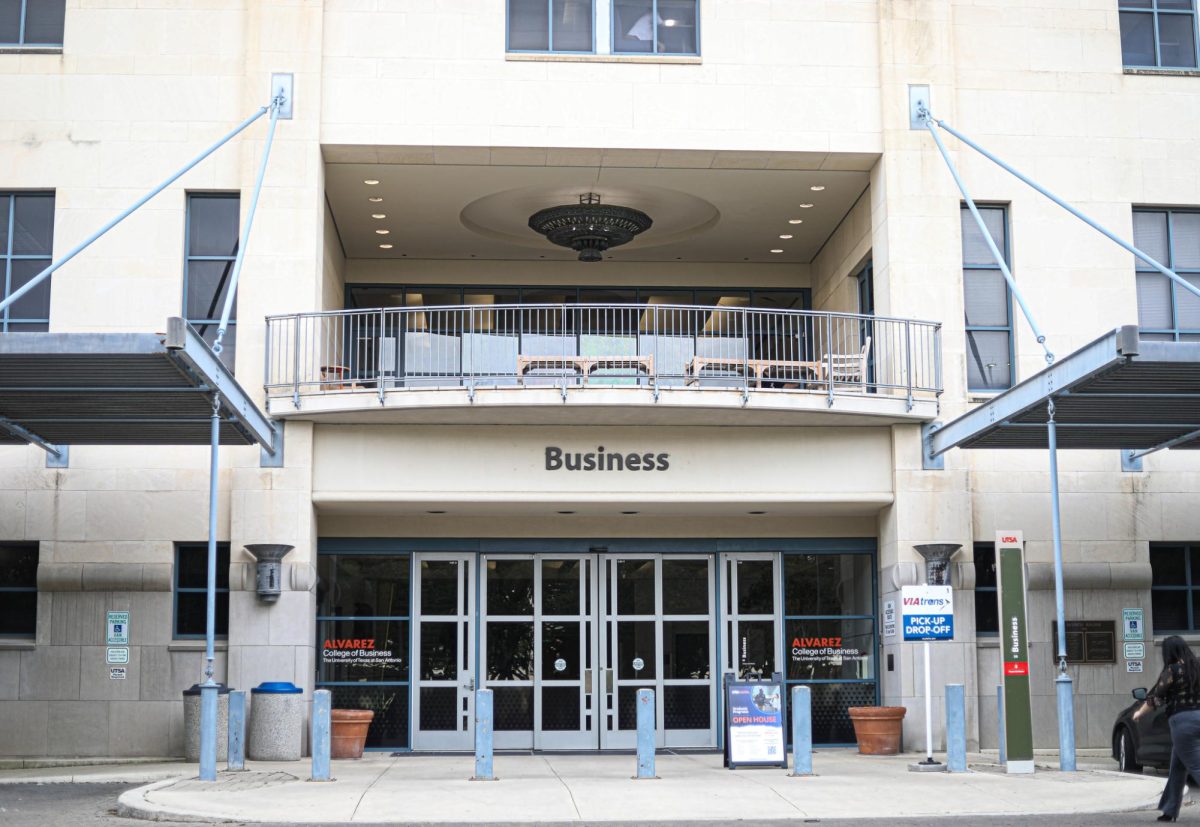On Oct. 12, the migrants’ traditional el corrido, or ballad, introduced the Institute of Texan Cultures’ (ITC) Migrant Worker Stories event. The institute hoped to shed light on the benefits and struggles of the migrant experience.
Los Inocentes Hermanas, a singing duo of Benicia Centera and Ista Centera, harmonized with their guitarras to express the elements of migrant life: hard work, ethics and tight-knit family.
The event focused on the perspectives of two key speakers: Cynthia Jasso Arredondo, a former migrant worker and the current manager of Educational and Training Services at Texas A&M University-Kingsville, and Dr. Alberto Rodriguez, assistant professor of history at Texas A&M University-Kingsville.
The migrants and their families must pack their belongings and travel to harvest fields each summer for 10-hour workdays, 7 days a week.
“The week after Easter represented the beginning — and the challenges — of a treacherous summer,” Rodriguez recounted. “The trips to Colorado were long (and) depressing for all of the family. We understood that Colorado was a place where we worked long days in the sun with minimal conditions to support our daily lives.”
Even under harsh conditions, migrant work is a part of many families.
“A lot of people don’t realize your cucumbers and your sugar — all of that came from somewhere all of that came from people’s hardworking hands,” Arredondo said.
“We didn’t have running water, and sometimes we didn’t have light,” said Rodriguez. He believes that the experience of migrant work can “do one of two things to you: it could crush you, or it could make you.”
Arredondo, however, believed that her childhood as a migrant worker was essential to her identity.
“Migrant farm work, for me, is a foundation of who I am – it was the best thing that ever happened to me,” said Arredondo. “I appreciate the value of hard work, and it’s also showed me tenacity. It has showed me to never give up; to accomplish something, your willingness really has to be there.”
Both Rodriguez and Arredondo agreed, however, that migrant children need support to rise above their situations.
The speakers participated in the College Assistance Migrant Program (CAMP), a program offered at Texas State University that gives students full scholarships to attend college and a first year monthly stipend of $75. Both were first generation college graduates, and Arredondo, who graduated in the top 5 percent of her high school class, emphasized that CAMP opened the door for new opportunities.
Rodriguez noted that the program provided children from migrant backgrounds a way to pursue college without feeling alienated.
Migrant work contains valuable elements conducive to our communities, said Rodriguez, “but many times accompanying it is a vicious cycle of only graduating high school or not graduating at all.”
The cycle of poor conditions in migrant worker families stops when their children are able to pursue a higher education.
Rodriguez, grateful for support from CAMP, now hopes to help other migrant youth.
Lupita Barerra, director of Education and Interpretation at ITC, promoted the event, while Greg Garrett, educational specialist at ITC, organized it. The program concluded with one last corrido that represented the beauty and continuation of migrant culture in Texas. An audience member commented that her family’s experience of migrant work taught them three things: “family unity, hard work and survival against all odds.”











